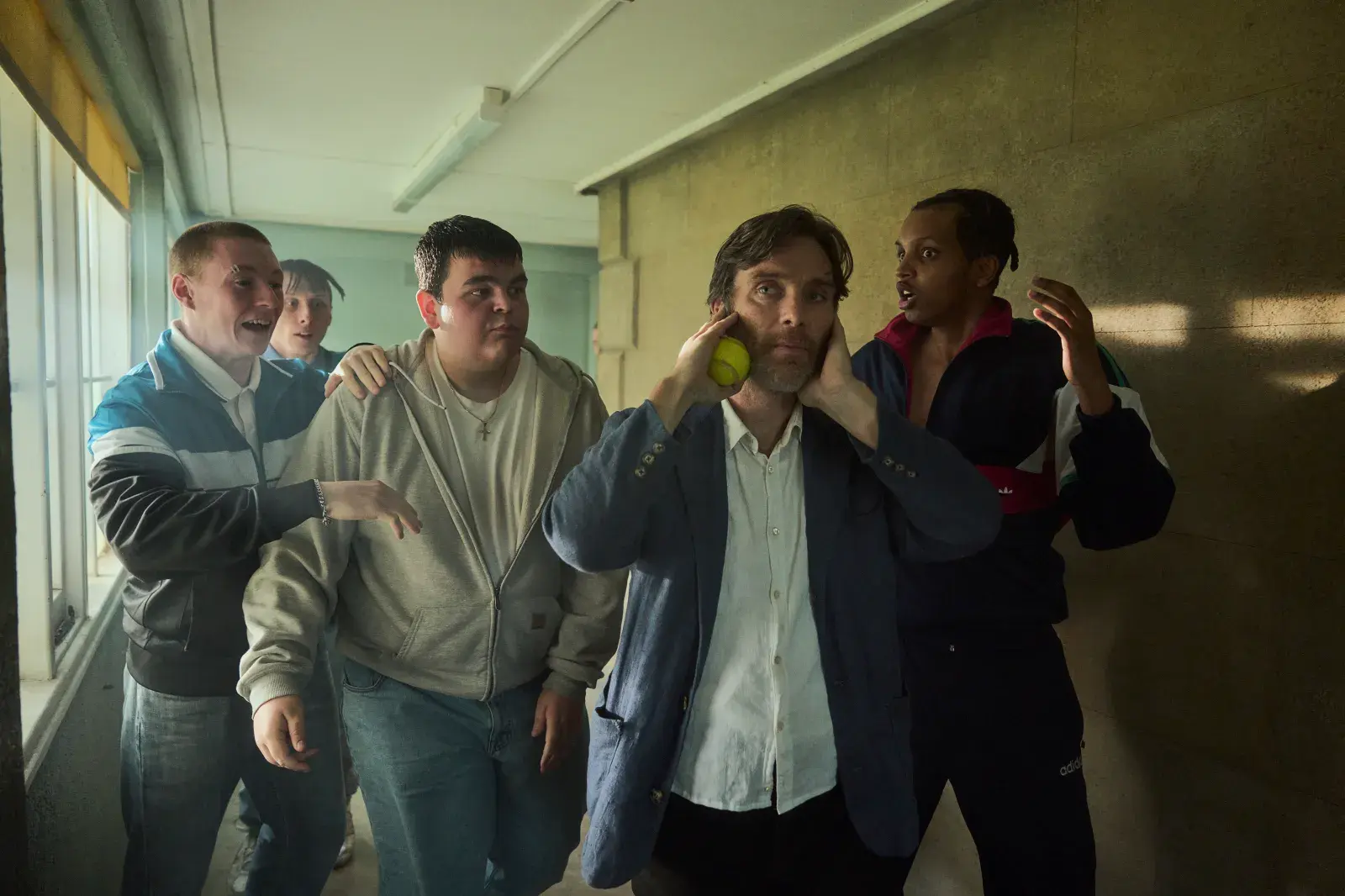From Page to Screen: Cillian Murphy and ‘Steve’ Cast & Crew on Mental Health and Adapting Max Porter’s Novel – INTERVIEW
By Billie Melissa
Copyright newsweek

Off the back of his first Oscar win, all eyes were on Cillian Murphy. What would the newly crowned Best Actor take on next?
After playing J. Robert Oppenheimer in Christopher Nolan’s Best Picture-winning feature, Murphy turned his attention to an old collaborator, Tim Mielants, who had directed the star previously in episodes of Peaky Blinders.
He appeared in his film Small Things Like These, set in 1985, where Murphy starred as Bill Furlong, a father who discovers disturbing secrets kept by the local convent and sets out to uncover the truth.
A world away from the close-to-billion-dollar box office of Oppenheimer, Small Things Like These took home a respectable $14.4 million from its $3 million budget, a feat likely credited to Murphy’s star power.
Deciding to stay in the orbit of Mielants, Murphy’s latest flick, Steve, trades convents for classrooms, where he plays the titular frustrated headteacher, who is desperately battling for the survival of his college, while grappling with his mental health.
“Cillian had just come off this huge success, winning his Oscar for this massive film,” Tracey Ullman says as we sit across from one another at London’s Ham Yard Hotel, alongside her co-stars Jay Lycurgo and Little Simz. “I just admire [Cillian] so much for getting us all together. He’s such a great team player. Being in this ensemble and wanting to do something like this. He was just amazing.”
Steve. (L to R) Tracey Ullman as Amanda, Cillian Murphy as Steve in Steve. Cr. Robert Viglasky/Neflix © 2025
Based on Max Porter’s novella, Shy, which first hit shelves in 2023, Steve switches perspective from the schoolboy played by Jay Lycurgo and rests inside the mind of Cillian Murphy.
Murphy remembers his first encounter with Porter’s book, on a retreat in West Kerry.
“Max read us the novel, and it was one of the first times I think anybody had heard it read out loud,” Murphy says. “It was one of the greatest artistic experiences of my life, actually, hearing this book that the world had not yet encountered being read by the author to his pals.”
However, at that point, it wasn’t on Murphy’s mind that this would someday be a film.
“I didn’t think that Shy could really be filmed,” Porter says, something that anyone who’s flicked through the pages of the novella would understand. It’s as visual as a film in its own respect, but very interior and entirely swept up in the thoughts of Shy.
“I then read the novel when it came out again,” Murphy says. “I just adored it. I adore all his work, but never considered adapting it at that point because of what Max said. It’s very much in Shy’s head.”
So, how did the film come to be?
“I wanted to write a part for Cillian, and we thought Steve was a really interesting way of getting to what the film would be about in a broader social-political context. I’m very interested in that work and the way that private pain, or even personal turmoil and strife, is all the time banging against our responsibilities as parents or carers or teachers or whatever,” says Porter.
“We’ve been a little bit committed,” Porter says of his relationship with Murphy. “We’re sharing work, we’re sharing music, we’re sharing books, we’re sharing ideas about the state the world is in, how badly f****d things are at various different levels. So, we were looking for a thing that we could really get our teeth into, and Steve just popped up.”
Steve. Cillian Murphy as Steve (Center-Right) in
Steve. Cr. Robert Viglasky/Netflix
Beyond being an excellent commentary on the education system, and the champions holding it up under the crushing weight of threats of removal of funding and support, Steve dives into mental health and how it impacts us all in our work and our lives.
“Some of the best and most brilliant people we know are fracturing, broken, can’t handle it,” Porter says. “Statistically, so many teachers are leaving the profession because of mental health. Suicide is the leading cause of death [in the United Kingdom] in under-30s, and two-thirds of them are boys. This is the world we live in, so let’s write about it. Let’s be utterly uncomplicatedly sincere in our desire to address those people with a loving eye, and celebrate them, and try to reach them on screen.”
While dialogue on mental health has long been a staple of cinema, Steve leans into sincerity, digging beneath the superficiality that can often gloss over these crucial conversations, an element which allowed some o…



